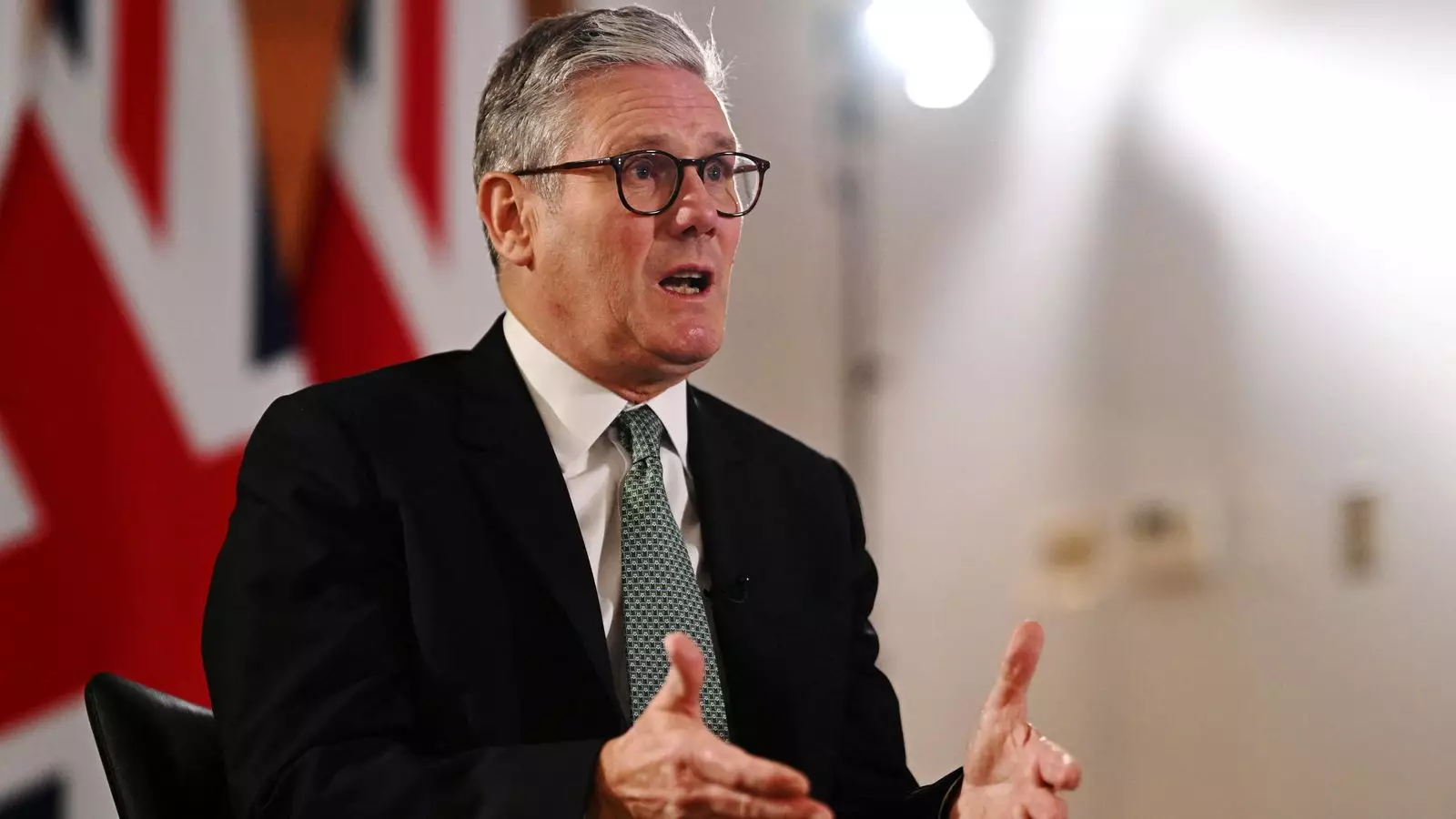In recent developments within the UK political arena, Labour leader Sir Keir Starmer has found himself at the center of controversy surrounding financial donations and private accommodations. A £20,000 donation used for housing during a crucial electoral period has raised questions about ethics in politics, especially amid larger discussions about transparency and accountability in the wake of increasing scrutiny on political funding. This article delves into the implications of Starmer’s situation and examines the broader context within which this controversy has emerged.
Sir Keir Starmer accepted accommodation support valued at £20,437.28 from Lord Waheed Alli, a prominent donor and former chair of the fashion company Asos, during a time of heightened media attention as the election campaign kicked off on May 22. This donation is particularly contentious as it came shortly before a defining period in his son’s education, whereby he had promised his family that he would ensure a stable environment for his son to focus on his GCSE exams. While Starmer asserts that no monetary transaction occurred in accepting this accommodation, the optics of this arrangement raise significant ethical questions.
Starmer’s communication of his intent to secure a distraction-free environment for his son reveals a deeply personal element to this story, as he expressed a resolve to shield his family from the pressures of media and public scrutiny. An assertion made during a Sky News interview emphasized his commitment to family, claiming his duty as a father took precedence. However, this raises an essential question: do personal commitments justify acceptance of financial support that may present a conflict of interest?
Ethics in Political Donations
The ramifications of Starmer’s situation extend beyond the immediate implications for his family. He has faced intense criticism for accepting more donations than any other Member of Parliament, particularly as he has been vocally critical of the Conservative Party’s handling of donation ethics. His acceptance of a substantial sum from Lord Alli, who also has historical ties to Labour beyond Starmer’s tenure, has placed a spotlight on the discrepancies within the political funding landscape.
There is an inherent tension in the political establishment regarding how donations are perceived and managed. While Starmer claims that individual MPs must navigate their ethical landscape regarding donations, the lack of uniform guidelines makes it difficult to establish a clear narrative around what constitutes acceptable behavior. This becomes especially relevant when understanding that public perception can be significantly impacted by the sources and amounts of political funding.
The complexity of Starmer’s situation encapsulates a broader cultural debate about transparency and integrity in politics. As political leaders face mounting pressure to clarify their positions regarding donations, the conversations spark a major question: should personal circumstances mitigate the accountability that public figures hold to their constituents? While it is indeed crucial to account for the human stories behind political actions, it must not overshadow the necessity for transparency and ethical conduct in public office.
Starmer’s narrative, intertwined with his family obligations, continues to evolve amidst his party’s wider concerns about economic policies and proposed tax changes. As Labour’s annual conference convenes, discussions about his donor relationships take center stage, with opposition parties eager to leverage any perceived hypocrisy. The controversy serves to challenge the legitimacy of donations made in the shadows, urging a contemporary reevaluation of political funding practices in the UK.
Sir Keir Starmer’s acceptance of a substantial accommodation donation highlights the ongoing struggle between personal and public interests within the realm of British politics. As the Labour leader wrestles with questions of ethical conduct and transparency, the situation prompts a deeper investigation into the political donation culture as a whole. The need for a more defined regulatory framework surrounding donations, filled with accountability measures, has never been more apparent. Political leaders, including Starmer, must navigate the dual pressures of personal responsibility and public scrutiny to maintain credibility in an increasingly complex and connected socio-political environment.


Leave a Reply